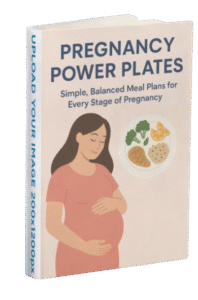Being an expecting mother is both thrilling and daunting.
It’s crucial to have the right info to make smart choices during this time.
In this detailed guide, I’ll cover everything from the start to postpartum care.
My aim is to give you the most important info. This way, you’ll feel ready and confident for your baby’s arrival.
Key Takeaways
- Understanding the different stages of pregnancy
- Essential tips for a healthy pregnancy
- Overview of pregnancy care and postpartum support
- Navigating the emotional aspects of pregnancy
- Preparing for motherhood
Understanding Pregnancy: An Overview
Learning about pregnancy helps expecting mothers get ready for their journey.
Pregnancy is a unique experience for every woman. It brings many physical and emotional changes.
Exploring pregnancy, it’s key to know the body changes that happen.
Pregnancy week by week is a big question for many.
It helps them see how their pregnancy is going.
What Happens During Pregnancy?
During pregnancy, a woman’s body changes a lot to help the fetus grow.
These changes can affect both the body and mind.
Some common body changes include:
- Mood swings from hormonal changes
- Morning sickness and feeling tired
- Bloating and sore breasts
Knowing these changes helps expecting mothers deal with pregnancy’s challenges.
It’s also important to understand the pregnancy symptoms that may show up.
Key Pregnancy Terms to Know
Learning important pregnancy terms makes the journey easier.
Some key terms are:
- Trimester: A three-month period, with pregnancy split into three parts.
- Gestational age: The age of the fetus from the first day of the last period.
- Fetal development: How the fetus grows and develops during pregnancy.
Knowing these terms helps you feel more confident as you go through pregnancy. Understanding the changes week by week is very helpful.
Planning for Pregnancy
The journey to a healthy pregnancy starts long before you conceive.
It’s all about planning and getting ready.
Understanding how to improve your health and your baby’s is key.
Preconception Health Tips
Preconception health is more than just being healthy.
It’s about making the best environment for your baby.
Maintaining a healthy weight and managing conditions like diabetes are crucial.
Avoiding alcohol and tobacco is also important.
Regular check-ups with your doctor can spot issues early.
It’s also vital to get your vaccinations up to date.
This protects you and your baby from infections.
Dietary Considerations Before Conceiving
Eating a balanced diet is essential for a healthy pregnancy. Increasing your intake of folic acid helps prevent birth defects. Foods like leafy greens and fortified cereals are good sources.
Also, make sure you get enough iron, calcium, and protein. These nutrients are vital for your health and your baby’s.
Try to eat more whole foods and drink plenty of water.
The Importance of Prenatal Vitamins
Prenatal vitamins fill any nutritional gaps in your diet. They ensure you and your baby get all the necessary nutrients. Folic acid, iron, and calcium are key in these vitamins.
While prenatal vitamins aren’t a diet replacement, they offer peace of mind. They support your baby’s growth. Talk to your doctor to find the right prenatal vitamin for you.
By focusing on preconception health, diet, and prenatal vitamins, you can boost your chances of a healthy pregnancy. Planning ahead is a proactive step towards a positive experience.
The Stages of Pregnancy
Pregnancy is a beautiful and complex process. It is divided into three stages, or trimesters. These stages are crucial for the fetus’s development and the mother’s health.
First Trimester: What to Expect
The first trimester lasts from week 1 to week 12. It’s a time of significant growth for the fetus. The mother may feel morning sickness, fatigue, and mood swings.
Key developments in the first trimester include:
- Implantation of the fertilized egg in the uterus
- Formation of the embryo’s major organs
- Development of the neural tube, which eventually becomes the brain and spinal cord
Second Trimester: Changes in Your Body
The second trimester, from week 13 to week 26, is often called the “golden period.” Many women feel less morning sickness and more energy. The fetus grows and moves more.
Notable changes during the second trimester include:
| Week | Fetal Development | Maternal Changes |
|---|---|---|
| 13-16 | Fetal skin is transparent, and underlying fat begins to form. | Morning sickness may decrease, and energy levels may increase. |
| 17-20 | The fetus can swallow, kick, and even suck its thumb. | The mother may start to feel the baby’s movements. |
| 21-26 | The fetus’s digestive system is practicing contractions for after birth. | The mother’s belly becomes more pronounced, and she may experience back pain. |
Third Trimester: Preparing for Labor
The third trimester, from week 27 to birth, is a time of preparation. The fetus grows and gains weight. The mother may feel Braxton Hicks contractions and back pain.
- Creating a birth plan
- Attending childbirth education classes
- Preparing the nursery and necessary baby supplies
Pregnancy Symptoms: What to Look For
Pregnancy symptoms can differ a lot from one woman to another. It’s key to know what to watch for. During pregnancy, you might feel many physical and emotional changes.
Common Early Symptoms
Early pregnancy symptoms can be hard to spot, but they often include fatigue, nausea, and breast tenderness. Some women also feel mild cramping and spotting. These signs come from hormonal changes and your body adjusting to pregnancy.
Feeling more emotional or sensitive is also common in early pregnancy. Mood swings from hormonal changes are a big part of it. Taking care of yourself and getting support is important.
Unusual Symptoms That May Occur
While most women have typical symptoms, some may have unusual ones. These can be severe abdominal pain, heavy bleeding, or dizziness. If you have these, call your healthcare provider right away.
Other unusual symptoms include severe headaches, vision changes, or extreme swelling. These could mean you have pregnancy complications. A doctor should check them out.

When to Consult a Doctor
Knowing when to see a doctor is crucial during pregnancy. If you have unusual or severe symptoms, call your healthcare provider.
Some situations that need immediate help are vaginal bleeding, severe abdominal pain, or fever above 100.4°F. Your doctor can look at your symptoms and tell you what to do next.
- Severe vaginal bleeding or discharge
- Severe abdominal pain or cramping
- Fever above 100.4°F
- Severe headache or vision changes
Nutrition During Pregnancy
Nutrition is key during pregnancy, affecting both mom’s health and baby’s growth.
Eating right is vital for the well-being of both.
Essential Nutrients for Expecting Mothers
Some nutrients are more important during pregnancy.
These include:
- Folic Acid: helps prevent birth defects of the brain and spine.
- Iron: needed for making red blood cells for mom and baby.
- Calcium: crucial for baby’s bones, teeth, and muscles.
- Protein: important for baby’s tissue growth.
- Omega-3 Fatty Acids: supports baby’s brain and eye development.
| Nutrient | Importance | Food Sources |
|---|---|---|
| Folic Acid | Prevents birth defects | Leafy greens, beans, citrus fruits |
| Iron | Supports red blood cell production | Red meat, poultry, fish, beans, fortified cereals |
| Calcium | Develops baby’s bones, teeth, and muscles | Dairy products, leafy greens, fortified plant-based milk |
Foods to Avoid
Knowing what not to eat is just as crucial as knowing what to eat.
Some foods can harm mom and baby.
- Raw or Undercooked Meat and Eggs: risk of Salmonella and other infections.
- High-Mercury Fish: can harm baby’s nervous system.
- Unpasteurized Dairy and Juices: risk of Listeria infections.
Healthy Meal Planning Tips
Planning meals ahead ensures a balanced diet during pregnancy
. Here are some tips:
- Start the day with a nutritious breakfast, including whole grains, fruits, and proteins.
- Incorporate a variety of foods in your meals for a wide range of nutrients.
- Stay hydrated by drinking plenty of water all day.
By focusing on key nutrients, avoiding harmful foods, and planning meals well, expecting moms can support their health and their baby’s development.
Nourish your body and your baby with confidence — download Pregnancy Power Plates today and get trimester-specific meal plans, nutrient-packed recipes, and expert tips to make every bite count for you and your little one.

Emotional Changes During Pregnancy
Hormonal changes during pregnancy can make you feel like you’re on a rollercoaster of emotions. I felt everything from excitement and joy to anxiety and mood swings during my pregnancy.
It’s important to understand these emotional shifts for effective pregnancy care. Your emotional health is just as important as your physical health during this time.
Understanding Hormonal Fluctuations
Pregnancy brings big changes in hormones like estrogen and progesterone. These changes can affect your mood and emotional balance. It’s key to find ways to manage these mood swings.
Practicing relaxation techniques, like deep breathing or meditation, can help. These pregnancy tips can reduce stress and keep your emotions in check.

Coping with Stress and Anxiety
Stress and anxiety are common in pregnancy. Hormonal changes and the excitement of becoming a mother can contribute to these feelings. It’s important to find healthy ways to deal with them.
Activities like prenatal yoga or walking can help reduce stress. Eating well and staying hydrated are also important for your emotional and physical health.
| Coping Mechanism | Benefits |
|---|---|
| Relaxation Techniques | Reduces stress and anxiety |
| Physical Activity | Improves mood and reduces stress |
| Balanced Diet | Supports overall health and well-being |
Seeking Support from Partners and Friends
Having a support system is crucial during pregnancy. Your partner, friends, and family can offer emotional support and help you feel less alone.
Talking openly with your partner about your feelings can strengthen your bond. Joining support groups or online communities can also connect you with others who understand what you’re going through.
By understanding the emotional changes of pregnancy and seeking support, expecting mothers can face this journey with more confidence and ease.
Prenatal Care: A Guide
Getting regular prenatal care is key for a healthy pregnancy. It means going to check-ups with your healthcare provider. These visits help track your health and your baby’s growth.
The Importance of Regular Check-Ups
Regular prenatal check-ups are vital for spotting issues early. They let your healthcare provider watch your baby grow and check for any problems. They also give advice on keeping your pregnancy healthy.
At these visits, your healthcare provider will:
- Check your blood pressure and weight
- Look at the baby’s heart rate and growth
- Talk about any symptoms or worries you have
- Share info on pregnancy care and what’s coming up
Common Tests and Screenings
Many tests and screenings are done during pregnancy. They check your and your baby’s health. Some include:
| Test/Screening | Purpose | When It’s Done |
|---|---|---|
| Ultrasound | To see how the baby is growing and spot any issues | Throughout pregnancy, starting around 6-8 weeks |
| Glucose Screening | To see if you have gestational diabetes | Between 24 and 28 weeks |
| Group B Strep Screening | To check for Group B strep infection | Between 35 and 37 weeks |
As American Pregnancy Association says, “Prenatal care is essential for a healthy pregnancy.” Regular check-ups and screenings can spot problems early. This ensures the best outcomes for you and your baby.
“Prenatal care is not just about monitoring the baby’s health; it’s also about ensuring the mother’s well-being throughout the pregnancy journey.”
What to Expect During Appointments
Knowing what happens at prenatal appointments can make you feel more ready. Your healthcare provider will do a physical exam and ask about your health and symptoms. They will also talk about your baby’s growth.
It’s smart to come ready to your appointments by:
- Writing down any questions or concerns you have
- Bringing any relevant medical records or test results
- Having a support person with you for guidance and comfort
Being proactive and involved in your prenatal care helps ensure a healthy pregnancy. It also makes for a positive experience.
Labor and Delivery: What to Know
As your pregnancy comes to an end, it’s important to know about labor signs, delivery choices, and making a birth plan. Labor and delivery are the final steps of your pregnancy journey. Being ready can greatly improve your experience.
Signs of Labor
Knowing when labor starts is key. Look for regular contractions that get stronger and closer together. You might also feel back pain that moves to the front. A bloody show or mucus plug is another sign. Some women feel nausea, vomiting, or diarrhea too.
If you notice these signs, stay calm and call your healthcare provider for advice.
Different Delivery Options
Knowing your delivery choices helps you make better decisions. The main options are:
- Vaginal Delivery: This is the most common way, where your baby comes out through the birth canal.
- Cesarean Section (C-Section): A surgical delivery where your baby is born through incisions in your abdomen and uterus.
- Assisted Deliveries: These include using tools like forceps or vacuum extractors to help with delivery.
Talking to your healthcare provider about these options helps you understand what to expect. This way, you can plan what’s best for you.
Creating a Birth Plan
A birth plan outlines your preferences for labor, delivery, and aftercare. It can include:
- Who you want with you during labor and delivery.
- Your choices for pain relief.
- Any specific requests for the delivery, like delayed cord clamping.
- Your wishes for care right after birth, like skin-to-skin contact.
Having a birth plan ensures your healthcare team knows your preferences. This way, they can support you in having the birth experience you want.
Postpartum Care and Recovery
Postpartum care is key to your health after having a baby. It covers both physical and emotional healing. Knowing about postpartum care helps you take care of your baby and yourself.
Physical Recovery After Birth
Recovering from childbirth is a big deal. Your body changes a lot, and it needs time to heal. Proper postpartum care means managing pain, watching for infection signs, and slowly getting back to activities.
For the first few weeks, avoid heavy lifting and hard exercises. Start with gentle postpartum exercises like pelvic tilts and Kegels. But always check with your doctor before exercising.
Emotional Changes After Delivery
The postpartum time can be tough emotionally. Hormones, lack of sleep, and caring for a new baby can make you feel anxious or sad. It’s important to notice these feelings and get help.
Talking to your partner, family, and friends can help. Also, joining postpartum support groups can make you feel less alone. If you’re feeling really down or anxious, talk to your doctor. They can check if you might have postpartum depression.
The Importance of Self-Care
Self-care is vital for healing after having a baby. It means taking time for yourself, doing things that make you happy, and focusing on your health. Simple things like a warm bath or reading can make a big difference.
By taking care of yourself, you’re not just helping yourself. You’re also better able to care for your baby. Tell your loved ones what you need and accept their help.
Resources for Expecting Parents
Being an expecting parent can be a big adventure. Having the right resources can really help. It’s important to know where to find good advice and support.
Connecting with Others
Online communities and support groups are great for feeling connected. They’re places where you can ask questions and share your feelings. You’ll get helpful tips and advice from others who understand what you’re going through.
Valuable Resources
If you want more information, there are great books and websites out there. The American Pregnancy Association and What to Expect are trusted sources. They offer lots of information on pregnancy and parenting.
Preparing for Parenthood
Classes and workshops are perfect for new parents. They cover topics like childbirth and parenting skills. These programs help you feel more confident and build a support network. Using these resources can make your pregnancy journey easier.
FAQ
What are the first signs of pregnancy?
Early signs of pregnancy include missed periods, nausea, and feeling very tired. Some women also notice their breasts getting tender. But, every woman is different, and not all will notice these signs.
How often should I attend prenatal check-ups?
You’ll usually go to prenatal check-ups every month until you’re 28 weeks pregnant. Then, you’ll go every two weeks until you’re 36 weeks. After that, you’ll go weekly. But, your doctor might ask you to come more often if you have any health issues.
What are some essential nutrients during pregnancy?
You need a diet full of folic acid, iron, calcium, protein, and omega-3 fatty acids. These nutrients help your baby grow and keep you healthy.
Can I exercise during pregnancy?
Yes, exercising is safe and good for you during pregnancy. Just pick low-impact activities and talk to your doctor before starting or continuing.
How can I manage stress and anxiety during pregnancy?
To handle stress and anxiety, try deep breathing, meditation, or yoga. It’s also important to talk to your partner, friends, and doctor for support.
What are the signs of labor?
Signs of labor include feeling contractions, seeing a bloody show, or if your water breaks. Remember, labor can start differently for everyone. Always check with your doctor if you’re unsure.
What are the benefits of creating a birth plan?
A birth plan lets you share your wishes for labor, delivery, and aftercare. It helps make your birth experience more personal and satisfying.
How can I support my physical and emotional recovery postpartum?
Take care of yourself by resting when you need to and getting support from loved ones and your healthcare team. This helps a lot with recovering after having a baby.
Are there any foods I should avoid during pregnancy?
Yes, avoid raw or undercooked meats, fish with high mercury, and unpasteurized dairy. These foods can be risky for your baby’s health.
How do pregnancy hormones affect my mood?
Hormonal changes can cause mood swings and emotional ups and downs. Understanding these changes and getting support can help manage them.

